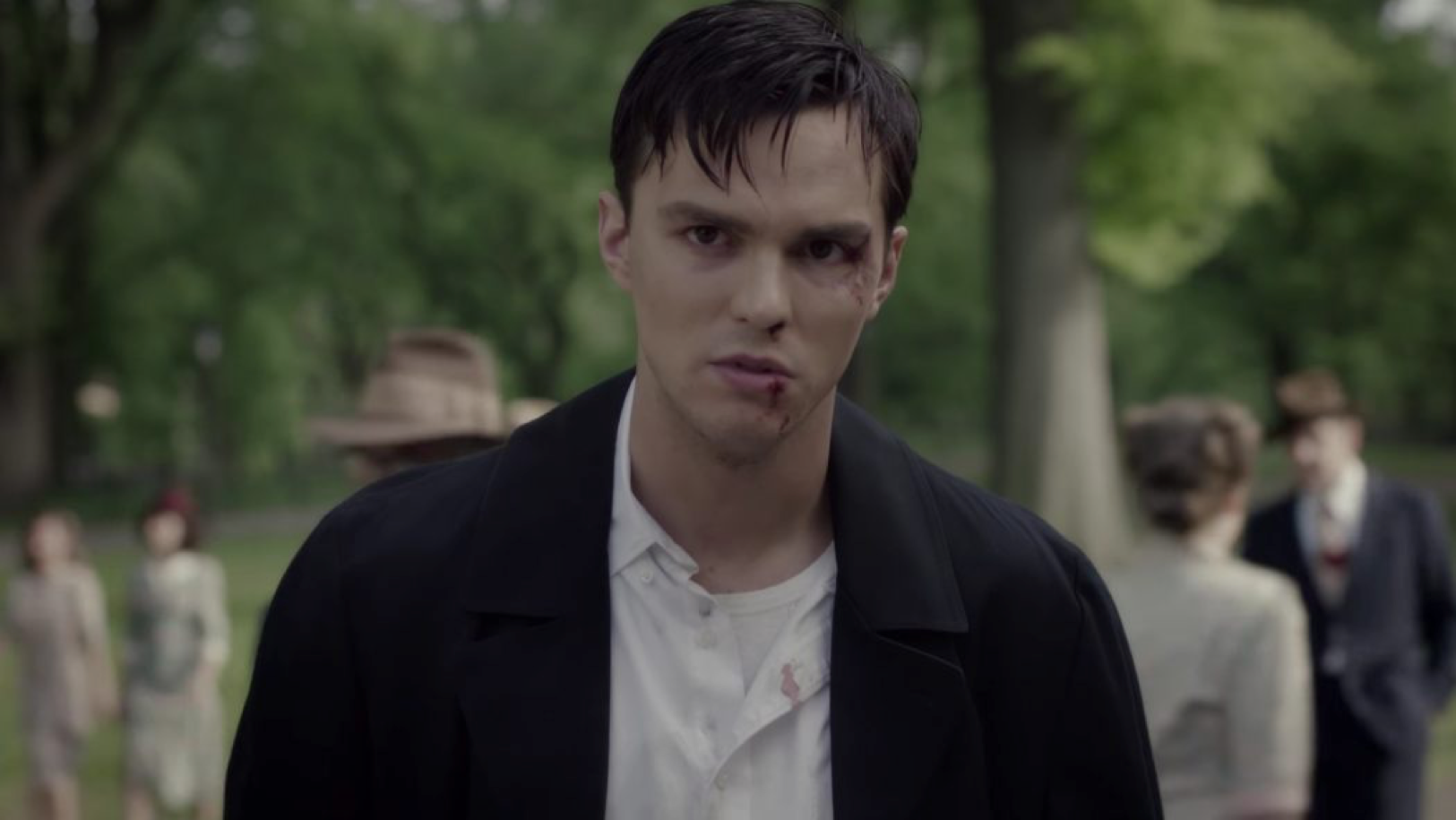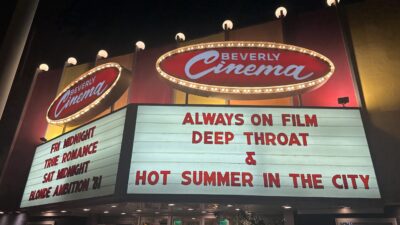This article previously appeared on Crossfader
Director: Danny Strong
Genre: Biographical Drama
Year: 2017
I’m just glad J.D. Salinger isn’t alive to see this film in theatres. Salinger notoriously never wanted any of his works to be adapted into film—and if REBEL IN THE RYE is any indication of how they would turn out, I would back him up. It is a phony, run-of-the-mill biopic that uses Salinger’s famous fictional delinquent Holden Caulfield as a crutch for its own ultimate lack of direction, drive, and heart. The film chronicles the life of J.D. Salinger (Nicholas Hoult) from his early days as an aspiring writer at Columbia to his time serving in WWII. It depicts how Salinger’s traumatic experiences as a despairing soldier shaped his writing and his eventual retreat into solitude.
I want to begin this tirade by pointing out that despite how ambivalent I am about this film, I love J.D. Salinger. THE CATCHER IN THE RYE resonated with me as an angsty high schooler, and it still holds a place in my heart as an angsty college bum. The only reason I liked this movie was because I love Salinger—everything else in the film, though it has its good moments, ultimately falls flat in delivering any meaningful message or insight about the infamous recluse’s inner life. Salinger’s fanaticism with privacy created a shroud of mysteriousness around his life that I thought the film would uncover. It wasn’t that Salinger’s severe confidentiality created too many intellectual barriers for the filmmakers—the film simply failed to make me understand him on a deeper level.
I expected a lot from REBEL IN THE RYE and found that I was disappointed. For one thing, the story is extremely formulaic. The film begins similar to any other biopic about a troubled artist: deep in the troughs of severe PTSD, Salinger struggles to light the same creative spark he once had. Sudden flashback to better times. His fingers rapidly bounce from key to key at the typewriter, all while smoking a cigarette and looking years away from the post-war version of himself previously on-screen. Story-wise, it was nothing special and failed to drive home a powerful theme or deeper inspirational meaning.

Me walking out of the theatre and realizing I paid $11 for that shit
One would think if REBEL IN THE RYE followed the biopic formula to the tee it would’ve at least managed to pace itself a bit better. Tension comes and goes like the wind, and the film would have been immensely better if someone had just restructured the outline at script-level. The film slows itself down with awkward pacing that takes away from the full emotional impact of certain scenes, like the ones of Salinger at war, or the ones of him using meditation to heal himself. They appear awkward and out of place, and consequently weaken the emotional connection to Salinger’s growth as a person and writer.
That being said, REBEL IN THE RYE wasn’t completely terrible. The cast was superb, with amazing performances that brought characters to life with vivacity and passion. Every single one of them, except Nicholas Hoult at times. While the stunner definitely looked the part, his movements were often so calculated that it took away from the character’s believability. In spite of that, the other actors made me care for the characters and their relationships to Salinger—which all helped to tell the story of who Salinger was. He and his writing were shaped by the war, but also by his relationships to his supportive mother (Hope Davis), reproachful father (Victor Garber), and fiery literary agent Dorothy Olding (Sarah Paulson). These meaningful relationships, however, seem to disappear when it comes to Salinger and the women in his life, Oona O’Neill (Zoey Deutch) and Claire Douglas (Lucy Boynton). Though perhaps it is not a fault of the writing but of Salinger’s own emotional impotence and dedication to writing stories for no one but himself.

Oona na, that’s her name
In particular, Salinger’s relationship with father-figure writing professor Whit Burnett (Kevin Spacey) gave the film a breath of life, even though they later had a falling out over a publishing issue. However, I found that the emotionless and awkward reunion I waited for disappointed me and really asphyxiated the film. It was uninspiring and confusing. The two meander around the forest by Salinger’s solitary house, and at the end of their talk they walk away in different directions. But Burnett is holding a cup of coffee—wouldn’t he need to go back to Salinger’s house to return it? Or did he come with it and just whip it out while they were strolling? I hate it when a potentially impactful scene is ruined by bad writing and terrible pacing. Though the performances throughout the film are good, they are hindered by dialogue that is often too on-the-nose and, like Salinger’s voice early in his career, aware of its wit and charm. Many character declarations and conversations feel too contrived, and it takes away from the humanity of the film.
The final, vague message seems to be that stories and writing are personal therapy. It doesn’t matter what happens to it afterward—as long as it heals you and helps you—and I agree, partially. Writing is extremely therapeutic, but it’s not just that. Stories create a conversation between the author and the audience. It’s a connection that forms from the values and emotions that make us human. After watching REBEL IN THE RYE, I simply felt no greater connection to the author. The film did a decent job in telling what made Salinger great, but failed to bring to screen what made him human. Early on in THE CATCHER IN THE RYE, Holden declares, “If there’s one thing I hate, it’s the movies. Don’t even mention them to me.” Well, Holden, if there’s one thing I hate, it’s movies that don’t make me care enough about their protagonist. Don’t even mention them to me.
Verdict: Do Not Recommend
















Comments